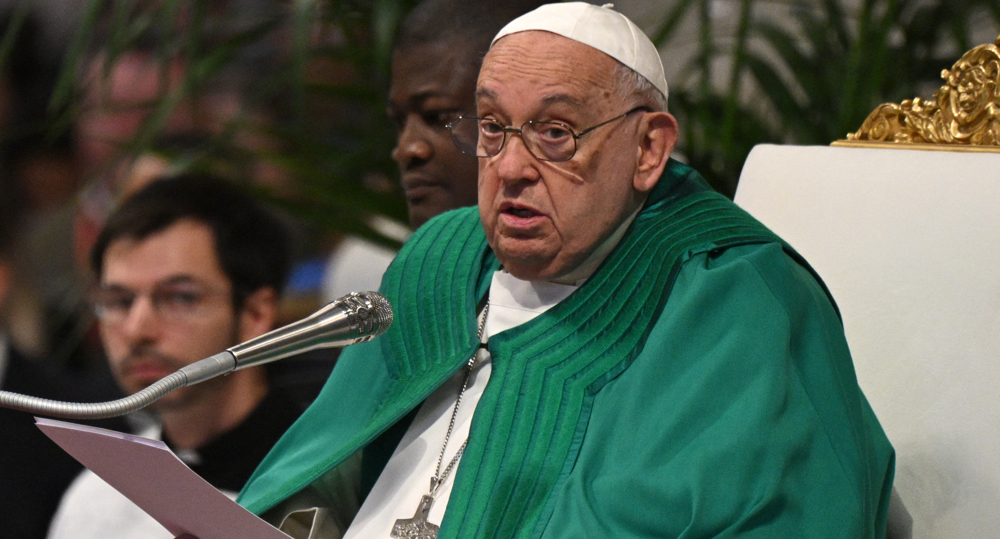Israel demolishes 3 Palestinian schools in 2 weeks: Rights organization
Palestinian children in the occupied West Bank are simply being denied education as the Israeli regime keeps on with the much-blamed policy of demolishing their newly constructed schools, a humanitarian NGO says.
According to the Norwegian Refugee Council (NRC), an international organization that promotes and protects the rights of people affected by displacement, Israeli authorities have destroyed or inflicted heavy damage on at least three educational facilities for Palestinian children in the region during the past two weeks.
The latest of these demolitions was a brand-new school paid for by the European Union (EU), which had been constructed just three weeks ago at Jub El-Thib, east of Bethlehem. However, Israeli demolition teams arrived there a couple of days ago and flattened the building, which once housed 64 elementary students, from the first to the fourth grade.

Now, instead of studying, learning, chanting and playing at a well-constructed building, these children have no choice but to confine themselves to a gloomy tent to shelter from the burning heat of the August sun. The makeshift classroom has no tables to sit and study at.
“It doesn't look nice anymore, it's ugly,” said Jana Zawahra, an eight-year-old student, shocked at the loss of her classroom, sobbing to herself on the ground where her school once stood.

The NRC said two other ill-fated education facilities were the only kindergarten for the Bedouin community of Jabal Al Baba, which was demolished, and a primary school in Abu Nuwar, whose solar panels, the only source of power at the school, was dismantled and confiscated by Israeli authorities.
The demolitions reportedly left up to 80 kids, aged between 5 to 10, without school, forcing them to start the school year in tents or under the hot sun.
“Just when they (students) were due to return to the classroom, Palestinian children are discovering that their schools are being destroyed,” said Hanibal Abiy Worku, a director of the NRC.
“What threat do these schools pose to the Israeli authorities? What are they planning to achieve by denying thousands of children their fundamental right to education?”

Israel argues that these schools had been constructed in the so-called Area C without granting a prior permission from the Coordinator of Government Activities in the Territories (COGAT), a unit in the Israeli military that engages in coordinating civilian issues between the Israeli regime, the Israeli military, international organizations, diplomats and the Palestinian Authority.
The Area C constitutes about 61 percent of the entire West Bank and it is directly controlled by COGAT, which demands permits for new building projects. But according to the NRC, the majority of planning requests are firmly denied, leaving international donors and Palestinians alike with no choice but to construct new schools anyway.

“We will stay here and resist against the occupation,” said Sami Mruwwah, the Palestinian director of education, adding, “We will rebuild the school soon, what happened against the school and its students violates human rights and childhood in particular.”
He also called on the international community not to remain silent “in the face of the crimes of occupiers against education in Palestine.”

The NRC says some 55 schools in the occupied West Bank are threatened with demolition and stop-work orders by Israeli authorities, most of them built with funding from the EU member states and other donors.
The EU has already announced that some 100 structures, including homes, shelters, water networks and schools, in the West Bank and East Jerusalem al-Quds have been destroyed or confiscated over the past year.
Many believe that the controversial demolition measures adopted by Tel Aviv are aimed at expelling more Palestinians from the West Bank.

Israel was created in 1948 after a Western-backed military seizure of vast expanses of Arab territories. In 1967, Israel occupied the entire West Bank, including East al-Quds, during full-frontal military operations. It later annexed the territories. Upon annexation, it also began propping up settlements, deemed as illegal by the international community due to their construction on occupied territory.
Neither move has ever been recognized by the international community. Since then, Tel Aviv has also been changing the territory’s demography by displacing concentrations of Palestinian populations either entirely or on a piecemeal basis.

On Tuesday, Israeli Prime Minister Benjamin Netanyahu vowed that Israel would never uproot any West Bank settlement.
“We have returned here for good. There will be no more uprooting of settlements in the Land of Israel. Settlements will not be uprooted,” he said, a day after meeting with UN Secretary General Antonio Guterres in Jerusalem al-Quds.
More than 600,000 Israelis now live in over 230 settlements. Tel Aviv has defied calls to stop settlement expansion in the occupied Palestinian territories.
Nov. 17: ‘Axis of Resistance’ operations against Israeli occupation
IRIB chief, IRIB World Service head condole martyrdom of Hezbollah media chief
Iranian engineer quits Google over tech giant’s collaboration with Israel
Iran vows ‘proportionate response’ to Israeli aggression, says needs no permission for defense
VIDEO | Press TV's news headlines
Pope Francis urges probe into Israel’s genocide in Gaza
VIDEO | Activists decry use of Irish airport to arm Israeli regime
VIDEO | Israeli crimes














 This makes it easy to access the Press TV website
This makes it easy to access the Press TV website